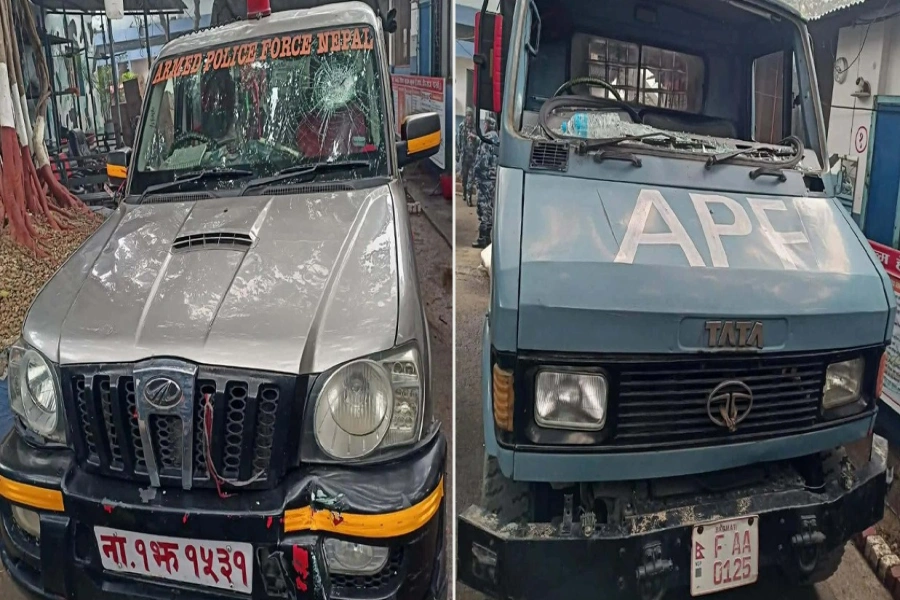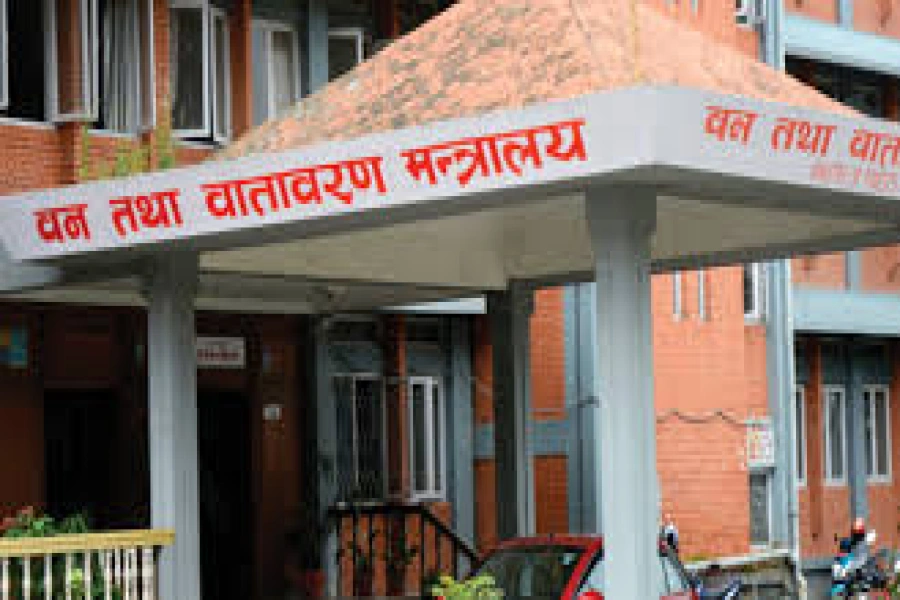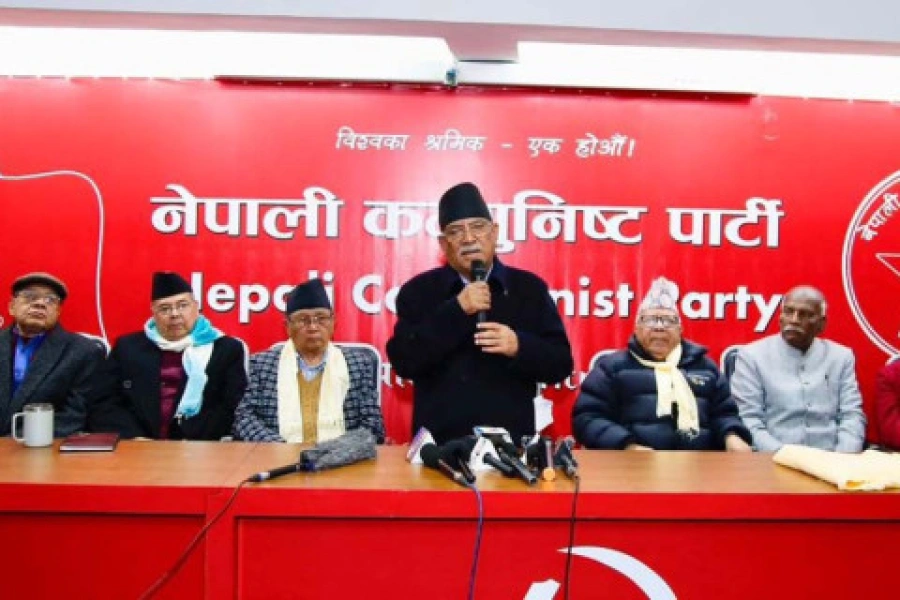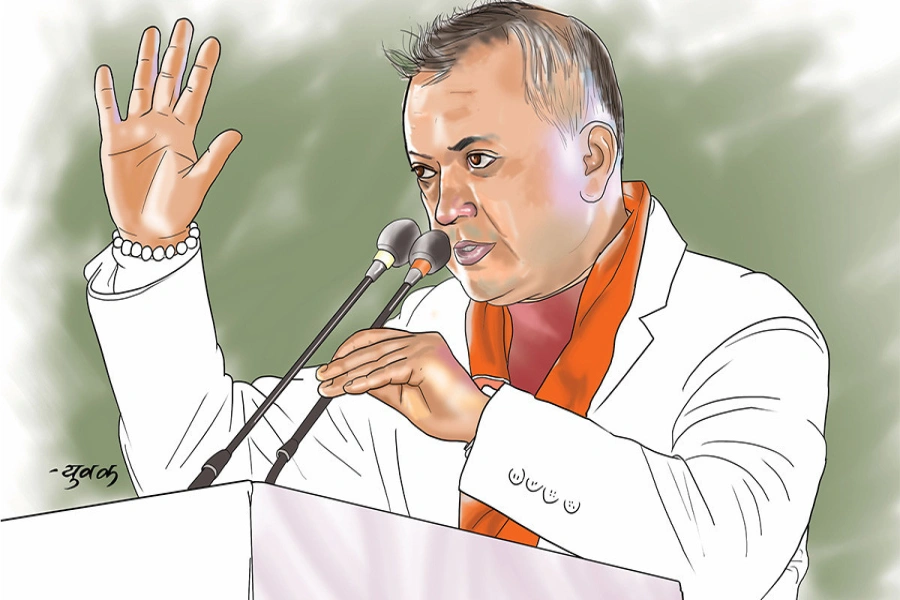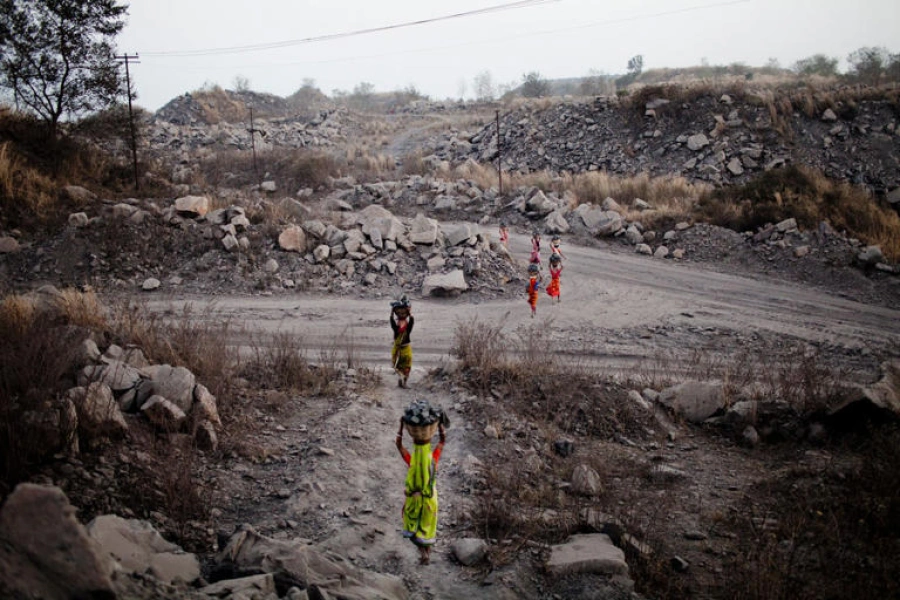Customs revenue hit hardest
KATHMANDU, Nov 3: Nepal's economy is bleeding white as the stand-off between the government and Tarai-centric political parties lingers. Fecklessness on the part of the government is pushing the situation toward the brink.
With the Madhes in turmoil since the last 80 days, importers have been incurring huge demurrage charges at Kolkata port, the key route for Nepal's third country imports. The importers have been paying Rs 40 million per day as demurrage at Kolkata port, according to President of the Federation of Nepalese Chambers of Commerce and Industry Pashupati Murarka. He claimed that the country is losing Rs 2 billion per day due to the unrest and the government's politics first policy.
Nepal's informal economy is 41 percent of GDP

Likewise, the government has lost Rs 25 billion in revenue in the first three months of the current fiscal year, according to the Revenue Division under the Ministry of Finance. The government has lost Rs 1 billion in vehicle tax alone, and revenue mobilization has dropped by 10.22 percent compared to the same period last fiscal year due to plunge in customs mobilization, according to Revenue Division figures.
The government had aimed at 12 percent revenue growth for the current fiscal year as against last fiscal year's target of Rs 422.90 billion. But the government has been able to mobilize only Rs 75.66 billion against the target of Rs 95.78 billion - a shortfall of 21 percent. This is mainly due to low customs revenue and value added tax (VAT), the major contributors to government coffers.
VAT mobilization dropped 26.43 percent to Rs 23.58 billion against the target of Rs 32.06 billion in the first three months, the Division added. "VAT mobilization is 16.41 per cent less than last fiscal year in the same period," the figures further show.
The blockade has hit the customs the most. Customs mobilization stood at Rs 13.63 billion - which is a drop by 26.7 per cent compared to the same period last fiscal year. The government has a target of Rs 18.32 billion in customs revenue in the first three months of the fiscal year.
Similarly, banks and financial institutions could have been lending Rs 1 billion in one working day. However, the Madhes unrest has crippled their lending potential, according to Nepal Bankers Association President Upendra Poudel. "The banks and financial institutions could have lent at least Rs 70 billion in the last 80 days."
They have not been able to lend due to loss of confidence by borrowers, and this will have a cascading impact on the economy. The sloth in lending will not only hit the banks and financial institutions themselves but shrink the economy also.
According to senior economist Bishwambher Pyakuryal, Nepal is facing a unique combination of economic collapse and is moving toward a failed state. "Hyper inflation - due to supply side constraints because of the blockade - falling production, and private sector loss of confidence have pushed the country toward a failed state," he added.


